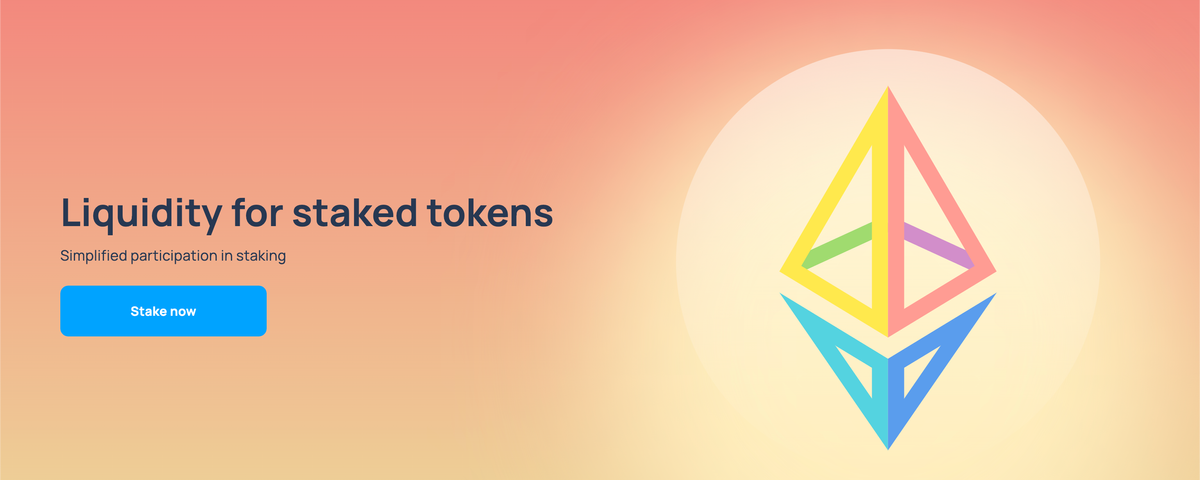Unveiling Lido DAO (LDO): A Gateway to Staked Ethereum (stETH)
Lido DAO (LDO) represents a decentralized and non-custodial liquid staking option tailored for Ethereum 2.0.

What is Lido DAO (LDO)?
Lido DAO (LDO) represents a decentralized and non-custodial liquid staking option tailored for Ethereum 2.0. This platform enables users to stake their ETH without the need to commit them to long-term lockups or manage their validator nodes. Lido DAO was introduced in December 2020 and currently stands as the leading liquid staking solution for Ethereum 2.0, boasting over $7 billion in staked assets.
How does Lido DAO (LDO) work?
To participate in Lido DAO's ETH staking program, users must initiate the process by creating a Lido wallet. Once a Lido wallet is set up, users can proceed to deposit their ETH into the Lido staking pool. After successfully depositing their ETH, users will receive an equivalent amount of stETH tokens.
stETH tokens are tokens conforming to the ERC-20 standard and serve as a representation of a user's stake in the Lido staking pool. These tokens can be utilized within the Ethereum ecosystem, including interactions with various DeFi protocols.
Lido DAO employs a method known as "staking" to contribute to the security of the Ethereum 2.0 blockchain. Staking involves locking up ETH for a specific duration to validate transactions and, in turn, earn rewards.
Lido DAO aggregates the ETH deposited by users in the staking pool to operate validator nodes. Validator nodes play a pivotal role in verifying transactions and safeguarding the Ethereum 2.0 blockchain.
As a reward for operating validator nodes, Lido DAO receives staking rewards, which are subsequently distributed to users who have staked their ETH on Lido DAO. The distribution of rewards is proportional to the amount of ETH staked by each user.
What advantages does Lido DAO (LDO) offer?
Lido DAO presents several advantages compared to alternative staking solutions, including:
- Enhanced Liquidity: Lido DAO offers users the ability to stake their ETH without the need to lock them up for extended periods. Instead, users receive stETH tokens in exchange for their ETH, which can be freely used within other Ethereum-based applications, providing liquidity.
- Increased Accessibility: Lido DAO operates as a decentralized protocol, eliminating the necessity for users to manage their validator nodes. This accessibility allows individuals of varying technical backgrounds to easily participate in staking.
- Heightened Security: Lido DAO boasts a robust security framework, supported by a dedicated team of developers and auditors, ensuring the safety and reliability of the protocol.
The Historical Evolution of Lido DAO (LDO)
Lido DAO, created by Konstantin Lomashuk, Vasiliy Shapovalov, and Jordan Fish in December 2020, represents a decentralized and non-custodial liquid staking solution tailored for Ethereum 2.0. Since its inception, it has gained significant traction and achieved the status of being the largest liquid staking platform for Ethereum 2.0 by March 2021, with over $1 billion in staked ETH.
In April 2021, Lido DAO introduced its governance token, LDO, empowering token holders to participate in voting on proposals that influence the Lido DAO protocol.
June 2021 marked another milestone when Lido DAO integrated with Polygon, a layer-2 scaling solution for Ethereum, enabling users to stake their ETH on Polygon and reap rewards.
Furthermore, in September 2021, Lido DAO integrated with Ethereum Merge, a monumental upgrade that transitioned Ethereum from a proof-of-work to a proof-of-stake consensus mechanism.
Notably, in October 2021, Lido DAO launched its decentralized exchange (DEX), facilitating the trading of stETH tokens alongside other Ethereum-based tokens.
Expanding its reach further, in November 2021, Lido DAO extended its offerings to include a liquid staking solution for Solana, allowing Solana users to stake their SOL tokens without lengthy lock-up periods.
Lido DAO has continued to evolve and expand, solidifying its position as a leading and trusted liquid staking solution for both Ethereum 2.0 and Solana.
Key Milestones in Lido DAO's History
- December 2020: Launch of Lido DAO.
- March 2021: Accumulation of over $1 billion in staked ETH.
- April 2021: Introduction of LDO governance token.
- June 2021: Integration with Polygon.
- September 2021: Integration with Ethereum Merge.
- October 2021: Launch of the Lido DEX.
- November 2021: Introduction of the liquid staking solution for Solana.
Conclusion
Lido DAO (LDO) and its innovative creation, staked Ethereum (STETH), offer a bridge between Ethereum's staking and DeFi ecosystems. By providing liquidity and accessibility to staked assets, Lido DAO has the potential to accelerate Ethereum 2.0 adoption and drive DeFi innovation. However, users and investors should remain vigilant in the face of smart contract risks and evolving regulatory landscapes. As the cryptocurrency space continues to evolve, Lido DAO stands as a promising project with the potential to shape the future of decentralized finance and Ethereum staking.
How to buy the best cryptos now
With Normal, you can instantly invest in perfectly diversified crypto portfolios like the Top 10, Top 30, AI/Data Index, and beyond in just a few seconds.
Simply connect your favorite crypto exchange (or create an account - we’ll help with this), select a portfolio you like, and invest!
Using Normal to invest in crypto saves a ton of time and money on the fees you’d traditionally pay.
So if you’d like to help us secure crypto’s decentralized future and invest in markets with ease, head on over to https://app.normalfinance.io/ and get started today!
